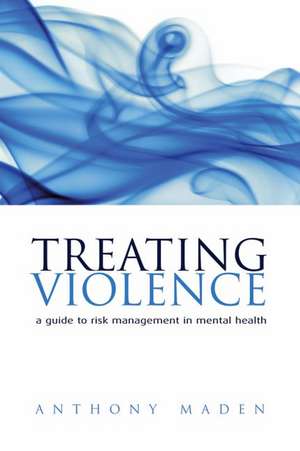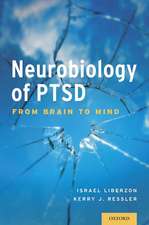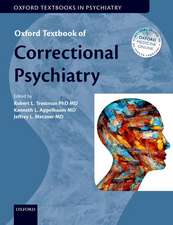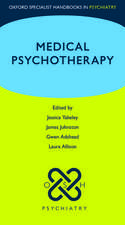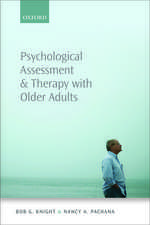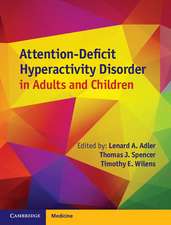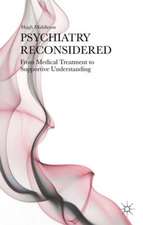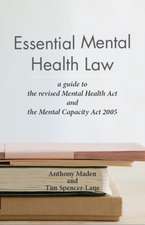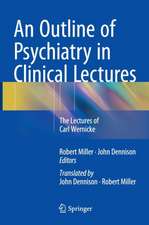Treating Violence: A guide to risk management in mental health
Autor Tony Madenen Limba Engleză Paperback – 18 ian 2007
Preț: 464.19 lei
Preț vechi: 608.21 lei
-24% Nou
Puncte Express: 696
Preț estimativ în valută:
88.85€ • 96.54$ • 74.68£
88.85€ • 96.54$ • 74.68£
Carte tipărită la comandă
Livrare economică 09-15 aprilie
Preluare comenzi: 021 569.72.76
Specificații
ISBN-13: 9780198526902
ISBN-10: 0198526903
Pagini: 208
Ilustrații: numerous tables
Dimensiuni: 156 x 230 x 13 mm
Greutate: 0.3 kg
Editura: OUP OXFORD
Colecția OUP Oxford
Locul publicării:Oxford, United Kingdom
ISBN-10: 0198526903
Pagini: 208
Ilustrații: numerous tables
Dimensiuni: 156 x 230 x 13 mm
Greutate: 0.3 kg
Editura: OUP OXFORD
Colecția OUP Oxford
Locul publicării:Oxford, United Kingdom
Recenzii
...the author of this work present a cogent, well-reasoned, and thought-provoking exploration of the current state of risk assessment and argues for a change in the procedure to increase the accuracy of a clinician's opinions, as well as improve the safety of others and the individual in question. The chapters reviewing the literature for the various methods of risk assessment currently used are especially interesting, and can definitely generate significant discussion and debate about the most effective way to assess the mentally ill for their potential to commit violent acts.
I would definitely recommend it to anyone who wants to get up to speed with the theory and practice of risk assessment and management in general, not just with respect to violence.
Professor Maden's book is a great introduction and guide to risk assessment and management in the UK. ...it's written in an engaging way, and worth a read.
Professor Maden presents his arguments in a robust manner that may not be for the faint hearted but leaves little doubt of the importance of having a sound understanding of why good quality of risk assessment is an important matter for all involved in delivery of mental health services and care.
I would definitely recommend it to anyone who wants to get up to speed with the theory and practice of risk assessment and management in general, not just with respect to violence.
Professor Maden's book is a great introduction and guide to risk assessment and management in the UK. ...it's written in an engaging way, and worth a read.
Professor Maden presents his arguments in a robust manner that may not be for the faint hearted but leaves little doubt of the importance of having a sound understanding of why good quality of risk assessment is an important matter for all involved in delivery of mental health services and care.
Notă biografică
Trained in psychiatry at the Maudsley Hospital and the Institute of Psychiatry in London before becoming professor of forensic psychiatry at Imperial College in 2000. Clinical director of services for dangerous and severe personality disorder at Broadmoor Hospital. An examiner for Membership of the Royal College of Psychiatrists. Teaches widely on risk management and service development. Gave expert evidence to several homicide inquiries including the Mubarak Inquiry and to the Joint Parliamentary Scrutiny Committee on the new Mental Health Bill.
